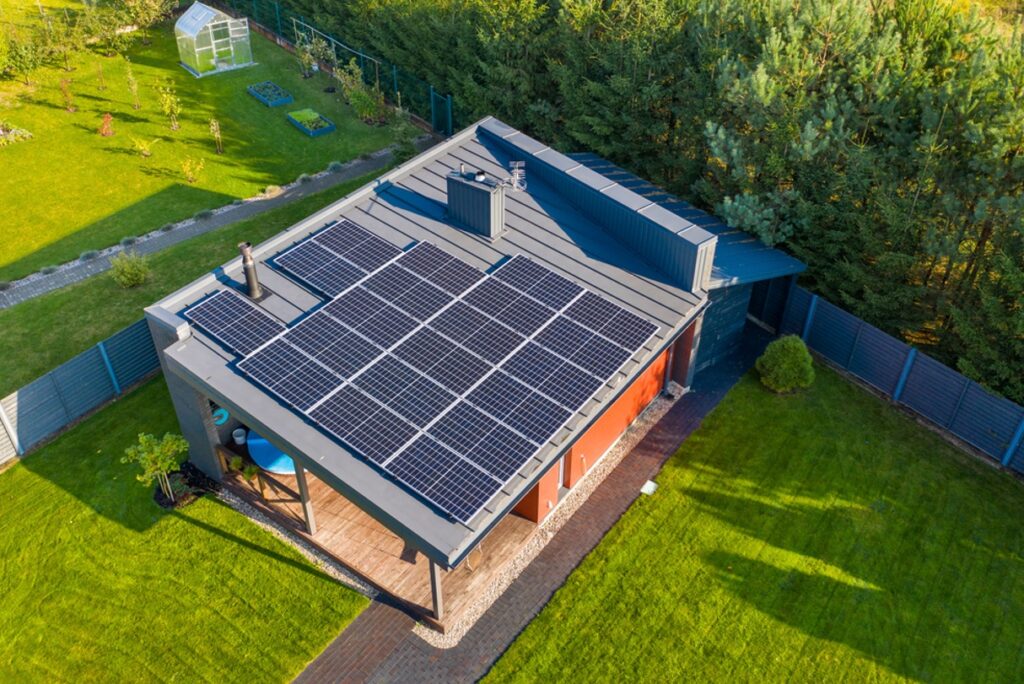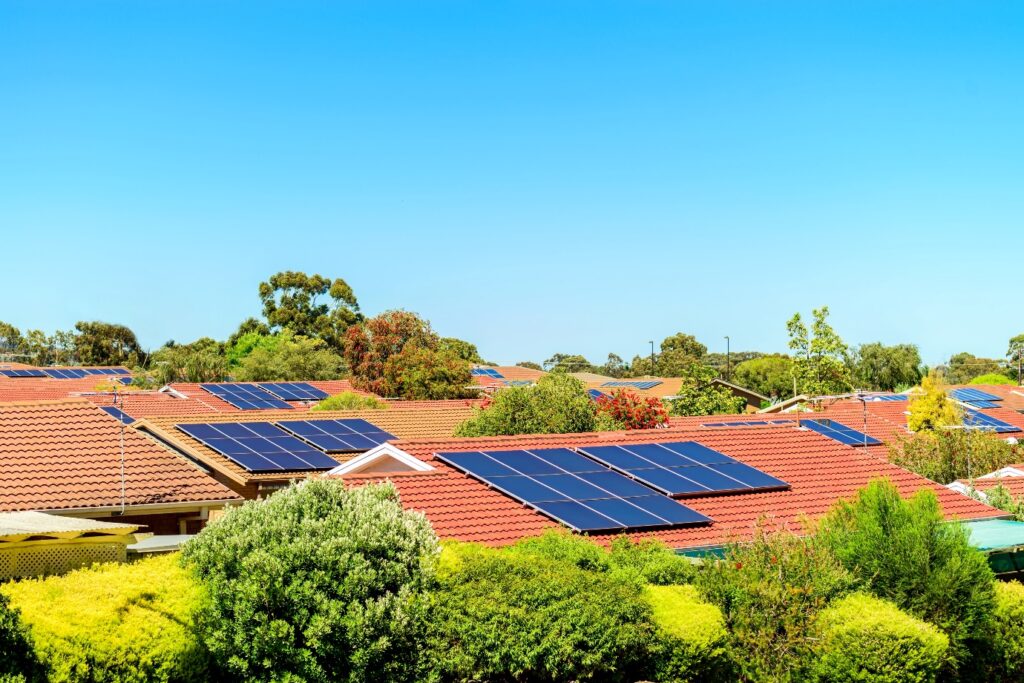Solar energy, which involves harnessing the sun’s energy through photoelectric panels or other gathering methods, is no longer just a “green dream” or a theory being tested by corporations and academic institutions. Today, there are efficient ways to use solar energy in your home and workplace. There are investment fees to take into account, as with any technical progress, but more and more house and business owners are starting to use this most basic form of renewable energy on a daily basis.

Although you can still do that if you’re really passionate about renewable energy, “going solar” no longer entails spending tens of thousands of rupees to cover your roof in solar panels. There are now a lot of solar-powered devices that can work on their own and meet important needs. Also, DIY solar panel kits make it easy for almost anyone to build a small solar system for home or business use.
Let’s talk more about the uses of solar energy in homes.
- Ventilation Fans: Self-contained roof vent fans work entirely without domestic electrical power, thanks to a small panel of photoelectric cells that uses solar energy. Small roof-mounted units are ideal for providing summertime cooling to a garage, shed, doghouse, or chicken coop. Additionally, you can utilize free-standing solar-powered fans in a patio or children’s play area.
- Swimming Pools: Everyone enjoys diving into the water, but not during the winter. However, the uses of solar energy make swimming pools active all year round. A solar blanket can be added to the water to warm it. You may also install a full-fledged solar water heating system if you’d like to go a little more high-tech.
- To Heat an Entire House: The uses of solar energy can be done in two ways—a hot water solar system or a hot air solar system.
Solar collector panels are used in whole-house heating systems to warm water that passes through tubing threaded through the collector panels. But this hot water is also kept in a small tank so that it can be used in plumbing fixtures instead of being stored there.
There are also whole-house heating systems that use hot air instead of water or another liquid to move heat around the house. These systems work by gathering and distributing warm air that was heated by the sun hitting the roof or an exposed wall. - Solar Cooking: On the other hand, the use of solar energy can also be for cooking food. Solar energy makes it simpler to cook than you might imagine, despite the fact that it is somewhat of a novelty exercise. You can quickly start cooking using a box, pan, aluminum foil, cooking bag, duct tape, Styrofoam insulation, and a thermometer.
- Outdoor Lighting: It is perfectly possible to provide effective landscape lighting with individual lighting fixtures, each of which has its own small solar cell and rechargeable storage battery. The batteries are charged during the day by the solar panels, and the charge is frequently sufficient to keep the lights on throughout the night.
Solar Energy Advantages and Disadvantages

- Lower Electricity Costs: The cost of electricity is always rising. Typically, 15% of the overall cost of running a warehouse goes toward power. Solar power has become a good and affordable choice for business owners who want to make use of solar energy as energy with a fixed cost and a 25–30 year lifespan. Your energy bills become more affordable and predictable as a result.
- Sustainable Power: Uses of solar energy reduces reliance on fossil fuels such as coal, oil, and natural gas for electricity generation. These fossil fuels contribute to global warming by giving off harmful gases that make the air, water, and soil less healthy. Also, solar energy doesn’t cause any pollution. Industrial solar energy systems are an investment in the future of the planet that can help protect the environment and non-renewable energy sources.
- Value of Energy Efficiency Rising: Industries into selling properties and construction benefits by using solar energy, i.e., by adding a solar panel, as it may raise its value and facilitate the sale. When a building has solar panels, some of the energy required by the building can be generated by them, resulting in cheaper short and long-term running costs.
- Reduced Emissions of Carbon: Use of solar energy every day protects the environment and cuts back on the use of fossil fuels. In contrast to fossil fuels, solar panels don’t emit any ash or other waste materials when they produce power. As a result, more businesses are increasingly looking for suppliers who have low carbon emissions, and the final consumer pays attention to this argument and the social obligations of their supplier.
- Support from Local Governments: In certain states, the government provides tax incentives to those who use solar energy. This is done to encourage people to switch to solar energy.
When it comes to generating electricity from solar energy using solar PV panels, there are no disadvantages, hence, purchasing a solar system is considered major investment for years to come. Therefore, you should definitely consider opting for solar energy for your power requirements.
Final Words
As you think about the different ways to go solar, think about how much you could save and how an investment in solar might affect your family’s budget. We hope that this article has helped you understand how can we use solar energy as well as solar energy advantages and disadvantages. So go on and check out the products on our website to increase the efficiency of your house. Consider Luminous if you’re beginning to consider solar energy.
Leave a Reply